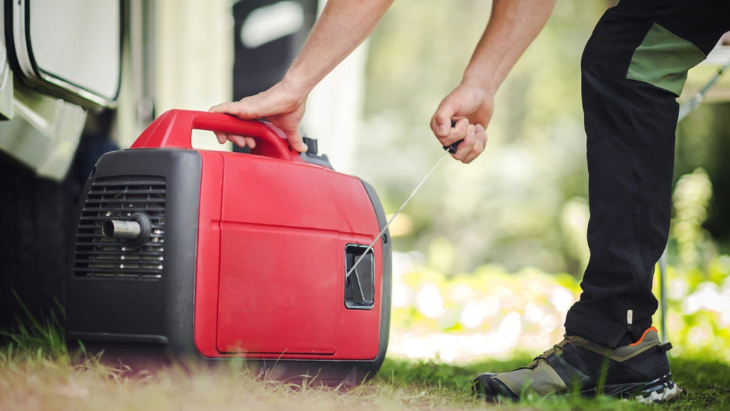Benefits of Using Portable Generators
The portable generator isn't as strong as a standby generator but most people prefer using it in the household for some reason below.
First of all, emergency preparedness. You never know when a big storm might knock out the power for a few days. With a generator, you can still run essentials like my fridge, fans, devices, and more to stay comfortable. No more sweating it out in the dark!
Camping is another obvious use case. Whether car camping or out in a remote site, a portable generator lets you fully enjoy yourself without stressing over batteries dying. You can cook big meals on my electric griddle, keep drinks cold in a cooler, and entertain the kids at night with lights and movies. Beats relying on candlelight!
For work projects, they're awesome too. Just the other weekend I used it to power my miter saw and compressor while giving my deck some TLC. No more extension cords running all over or waiting for the right outlet. I could set up anywhere.
I've also got tools that are gas-powered but a generator lets me run them electrically indoors or at night which is safer and less messy. Overall they just add so much flexibility when you need power off the grid.
Tired of relying on gasoline and noisy engines? Discover the best solar generators for clean, quiet, and renewable power on the go.
How We Picked And Tested?
At New York Garden, we take our testing process seriously to ensure that we provide you with reliable and trustworthy recommendations. We acquire a wide range of portable generators from different manufacturers and meticulously evaluate each one. Our testing process involves subjecting the generators to real-world scenarios and assessing their performance in various conditions.
We test the power output of each generator to determine its ability to handle different electrical loads. Whether it's powering essential appliances during a power outage or running tools at a worksite, we ensure that the generators meet their stated power ratings and deliver consistent performance.
Fuel efficiency is another critical aspect we evaluate during our testing. We measure the fuel consumption of each generator under different loads and durations. This information helps us determine how long a generator can run on a full tank and how efficiently it utilizes fuel. We understand that fuel costs can add up, so we strive to recommend generators that are both powerful and efficient.
Noise levels are also a significant consideration for many users. We measure the sound output of each generator at various distances to provide you with accurate information. We understand that having a quiet generator can be crucial, especially in residential areas or when using the generator for recreational purposes.
You can completely trust New York Garden's experts with a wealth of experience in using many different products. We are confident that we will give you objective and realistic reviews about the products you are interested in.
Why Trust New York Garden?
Whether you need backup power for outdoor events or storm outages, a portable generator is a valuable asset. But with various sizes, fuel types, and brand options on the market, making a decision can feel overwhelming. You can trust the recommendations in this article come from the extensive experience of our experts.
Damien Volkman has been reviewing generators for over a decade. He's put hundreds of generators to the test in real-world conditions to see how they perform under pressure. Our other author is electrical engineer Jimmie Beahan, who previously designed generators for one of the top brands. He understands the inner workings better than anyone to identify crucial design differences.
By highlighting the most important factors and trusting insights from Damien Volkman and Jimmie Beahan, you can be confident you're choosing a portable generator that best suits your needs without future headaches.
FAQs
Below are the frequently asked questions about portable generators:
1. Where should a portable generator not be used?
Don't use a generator inside or in partially enclosed locations like garages. Only place it in outdoor areas, away from windows, doors, vents, crawl areas, and in an area with appropriate ventilation that does not build lethal exhaust fumes.

2. Can a portable generator be used in the rain?
Portable generator instructions tell you not to use it in the rain. The Consumer Product Safety Commission suggests using it on a dry surface beneath an open place to prevent it from being moisturized.
3. What size portable generator do I require?
A 5,000 - 7,000-watt generator would be adequate to operate a refrigerator, microwave, and lights. If you want to operate more equipment like a water heater or air conditioner, you'll need a 10,000-watt model.































